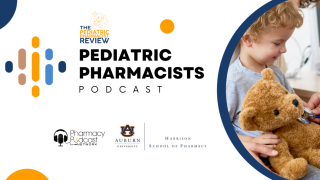Convalescent Plasma Benefits Certain COVID-19 Patients

Blood plasma donated by people who have recovered from COVID-19 may help hospitalized patients with the virus, a new study led by researchers at NYU Grossman School of Medicine indicates.
The peer-reviewed Original Investigation published by the JAMA Network on January 25, 2022, showed that among 2,341 patients, those who received an injection of convalescent plasma soon after hospitalization were 15% less likely to die within a month from COVID-19 than those who did not receive convalescent plasma or those who received an inactive saline placebo.
Notably, the researchers found that the most significant benefits for the therapy were among patients most at risk for severe complications because of pre-existing conditions.
As of January 23, 2022, the U.S. CDC lists the leading comorbidities found in COVID-19 patients.
The treatment, which contains antibodies and other immune cells needed to fight the infection, also appears to benefit those with type A or AB blood.
The U.S. Food and Drug Administration (FDA) considers this treatment experimental.
Concerning COVID-19 patients most likely to benefit, the FDA revised the Emergency Use Authorization for convalescent plasma on December 28, 2021.
It limits its use to patients with diseases that suppress their immune systems or receive medical treatments with the same effect.
“Our results show that, overall, patients hospitalized with COVID-19 may derive modest benefit from convalescent plasma, with some patient subgroups benefiting more than others,” comments study lead investigator and biostatistician Andrea B. Troxel, ScD, in a press release.
“Patients with the co-existing disease were most likely to show improvement from convalescent plasma, probably because they have the most difficulty producing antibodies to fight their infection,” adds Dr. Troxel.
“The infused plasma boosts their body’s ability to fight the virus, but only in the early stage of the disease and before the illness overwhelms their body.”
The current study findings come from pooling patient information from eight recently completed studies in the United States, Belgium, Brazil, India, the Netherlands, and Spain on the effects of convalescent plasma for COVID-19.
These benefits of the treatment are only likely to become increasingly clear as more data from the trials become available, says Dr. Troxel, a professor in the Department of Population Health at NYU Langone.
This is because the data from individual trials are too small to show the treatment’s overall impact on subsets of patients, she says. In addition, some individual studies have shown the therapy to be ineffective or of limited value.
Included in the analysis were data from another multicenter U.S. study published separately in December 2021 in JAMA Internal Medicine.
That study which included 941 patients hospitalized with COVID-19, showed that patients receiving high doses of convalescent plasma therapy and not on other medications, such as remdesivir or corticosteroids, were likely to benefit from the blood plasma treatment.
In addition, convalescent plasma collected from previously infected and subsequently vaccinated donors (vax-plasma) would contain antibodies in high enough quantities and diversity that could provide added protection against emerging viral variants, says Dr. Ortigoza.
Viruses typically mutate genetically (acquire random changes in their DNA or RNA codes) throughout any pandemic.
For this reason, convalescent plasma can offer effective treatment more quickly after such mutations than treatment types that tend to become less effective with time and must undergo a redesign process to address a new variant, such as monoclonal antibody treatments.
Since COVID-19 convalescent plasma (CCP) is not uniformly efficacious for all patients, the treatment benefit index uses each patient’s clinical characteristics to guide your treatment decisions, predicting the relative benefit from CCP treatment compared to treatment without treatment CCP transfusion.
This innovative treatment benefit index is freely available online.
Other NYU Langone researchers involved in the studies are Keith S. Goldfeld, DrPh; Mengling Liu, PhD; Hyung G. Park, PhD; Thaddeus Tarpey, PhD; Yinxiang Wu, MA; Danni Wu, MS; Yi Li, MS; Corita R. Grudzen, MD; and Judith S. Hochman, MD. Other study investigators are Anup Agarwal, MD, Gunjan Kumar, MD, and Aparna Mukherjee, MD, PhD, at the Indian Council of Medical Research in New Delhi; Cristina Avendaño-Sola, MD, Rafael Duarte, MD, PhD, and Arantxa Sancho-Lopez, MD, at the Hospital Universitario Puerta de Hierro Majadahonda in Madrid, Spain; Emma Bainbridge, MD, MPH, Priscilla Hsue, MD, and Annie Luetkemeyer, MD; at the University of California, San Francisco; Katherine Bar, MD, and Pamela Shaw, PhD, at the University of Pennsylvania in Philadelphia (now at Kaiser Permanente); Timothy Devos, MD, PhD, and Geert Meyfroidt, MD, PhD, at Katholieke Universiteit in Leuven, Belgium; André Nicola, MD, PhD, at the University of Brasilia in Brazil; Liise-Anne Pirofski, MD, PhD, and Hyun-Ah Yoon, MD, at Albert Einstein College of Medicine in New York City; Bart Rijnders, MD, PhD, and Casper Rokx, MD, PhD, at Erasmus University in the Netherlands; and Elliott Antman, MD, at Harvard University in Boston.
Funding support for the studies was provided by the National Institutes of Health grant UL1TR001445.
Update: On December 16, 2021, the U.S. NIH COVID-19 Treatment Guidelines Panel recommends against the use of COVID-19 convalescent plasma for the treatment of COVID-19 in hospitalized patients without impaired humoral immunity (HI). And there is insufficient evidence for the Panel to recommend either for or against the use of COVID-19 convalescent plasma for the treatment of COVID-19 in Nonhospitalized patients without impaired HI, and Nonhospitalized or hospitalized patients with impaired HI.
PrecisionVaccinations publishes fact-checked, research-based vaccine, antibody, and antiviral news.
Our Trust Standards: Medical Advisory Committee
























